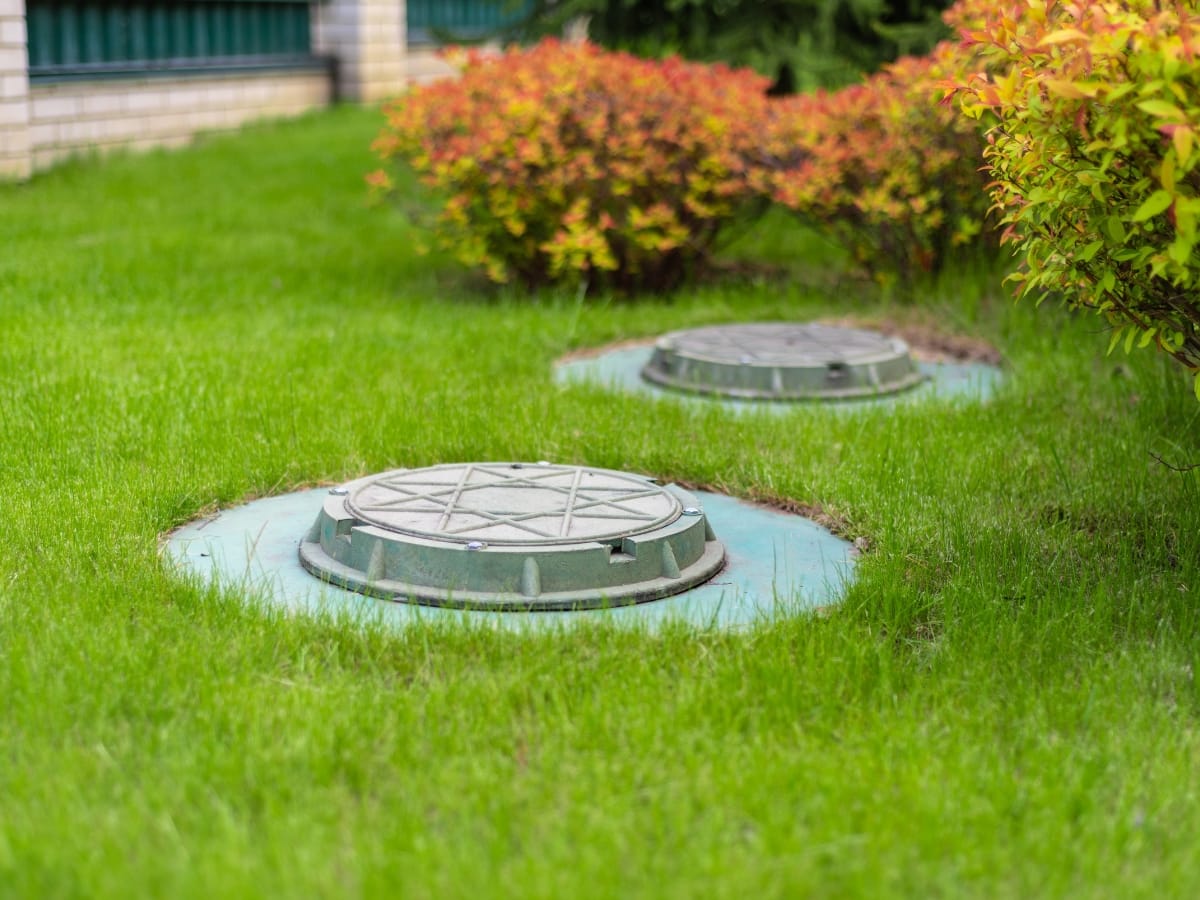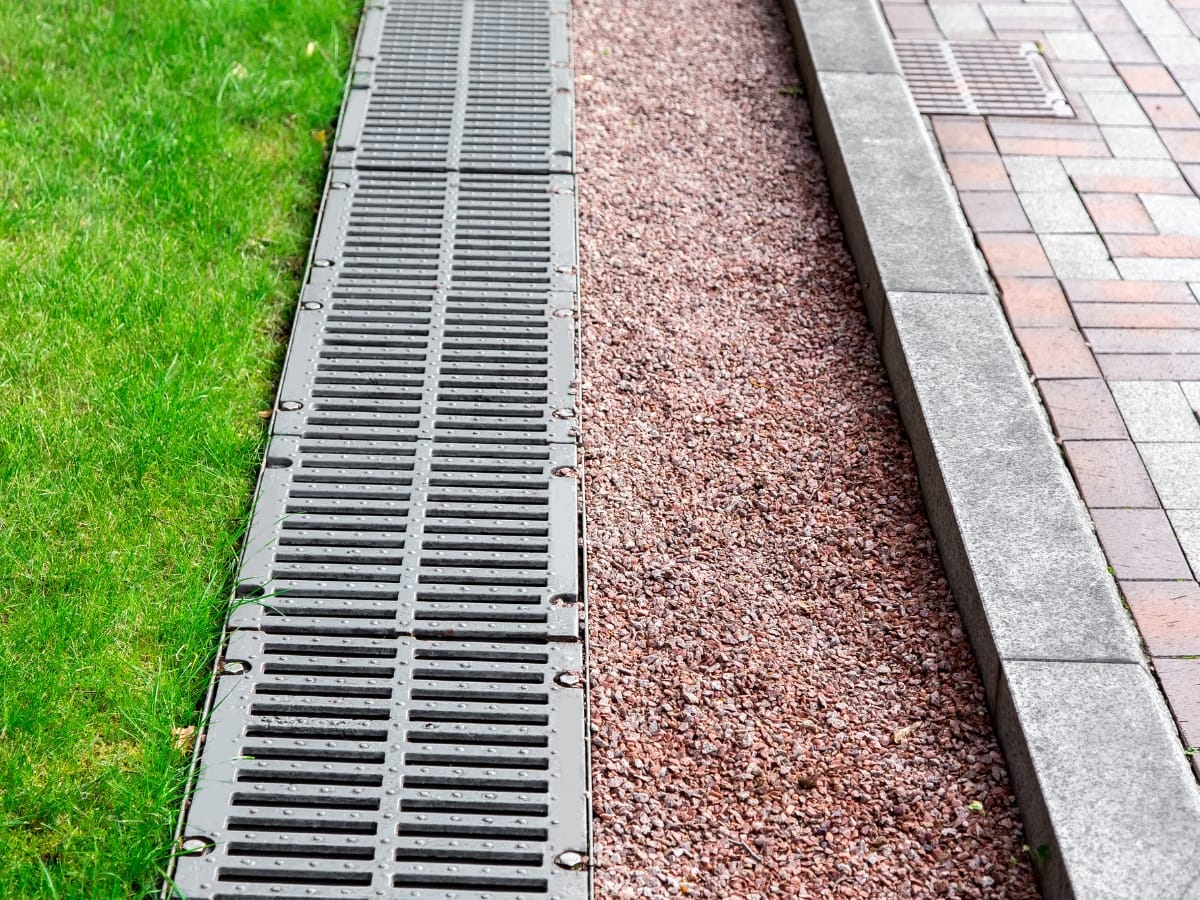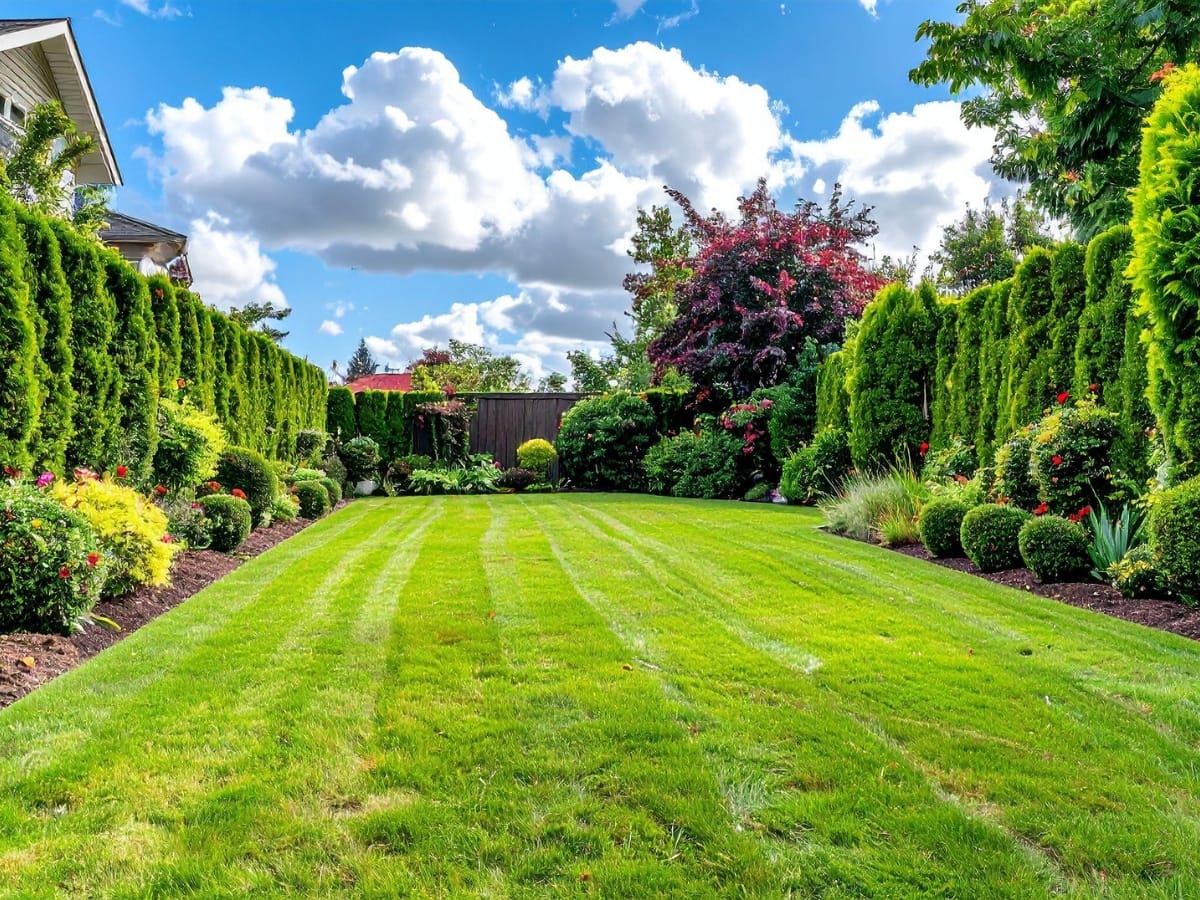Atlanta’s commercial properties frequently contend with flooding and foundation vulnerabilities, often exacerbated by heavy rainfall and the region’s signature red clay soil. Fortunately, implementing Flo-Well systems in Atlanta offers a proven, effective strategy for capturing, infiltrating, and dispersing stormwater before it can compromise your buildings.
This comprehensive guide will walk you through what Flo-Well dry wells are, how they operate, the significant advantages they bring to business sites, why they’re perfectly suited for Atlanta’s unique red clay terrain, Glover Landscapes’ meticulous installation process, and how Flo-Well technology stacks up against alternative drainage solutions. By the time you finish reading, property managers will clearly see why modular Flo-Well technology is an indispensable stormwater management solution for the entire metro Atlanta area.
Why Homeowners Trust Flo-Well Systems in Atlanta
Understanding Flo-Well Systems In Atlanta

Flo-Well Systems in Atlanta give commercial sites a reliable way to control stormwater without large surface basins. A Flo-Well unit is a modular dry well that captures runoff, holds it temporarily in underground chambers wrapped in geotextile fabric, then releases it slowly into surrounding soils. By moving water below grade and letting it infiltrate, the system limits puddles, protects pavements and foundations, and keeps landscaped areas usable after heavy rain.
What Is A Flo-Well System And Why It Matters
A typical installation uses interlocking polypropylene chambers to create a strong, open storage volume beneath lawns, parking islands, or drive lanes. Downspouts, trench drains, or yard inlets route water into the chambers so the surge from roofs and hardscape never overwhelms surface drains. Because the outflow is gradual, peak discharge to the street or storm sewer drops, erosion risk decreases, and groundwater recharge improves. In Atlanta’s frequent summer storms, that controlled release makes a noticeable difference in site safety and appearance.
Core Components Of A High-Performance System
Performance starts with the chamber body, which is engineered to support soil and traffic loads while maximizing void space for storage. A geotextile wrap keeps native soil out of the system but still lets water pass, so capacity is preserved over time. Clean, washed stone around and beneath the chambers creates free-draining pathways and helps distribute loads. Tight connections to inflow piping ensure water gets into the system efficiently, while controlled perforations and the surrounding stone bed guide water back into the soil in a uniform way. Each piece plays a specific role so the system stays free flowing and durable.
How Flo-Well Systems Manage Runoff
Think of the chambers as a buffer between a storm and the public system. During rain, runoff fills the underground reservoir instead of spreading across the surface. After the storm, water migrates through the fabric and stone into the native soil at the soil’s natural acceptance rate. This attenuation eases demand on municipal infrastructure and reduces the chance of downstream flooding. On sites with clay, the surrounding stone and chamber volume provide the extra time needed for infiltration to occur without creating surface ponding.
Site Assessment And Sizing For Atlanta Conditions
Proper sizing is essential. Designers review roof areas, pavement square footage, rainfall data, and soil percolation rates to estimate required storage. They also account for seasonal high water tables and utility clearances. In many Atlanta soils, a series of smaller Flo-Well clusters placed near downspouts performs better than one large basin since water is captured close to where it falls. Pre-treatment, such as a small sediment sump or filter insert, is often added where debris loads are high to keep chambers cleaner for longer.
Installation Overview And Maintenance Tips
Construction is straightforward. Crews excavate, place the stone base, assemble chambers, wrap them with geotextile, connect piping, backfill with stone, and finish with soil or pavement. Routine care is simple as well. Keep upstream gutters and grates clear, clean any sediment sumps on a set schedule, and inspect surface inlets after major storms. If flows slow over time, a vacuum truck can restore capacity through accessible inlets without digging.
Where Flo-Well Systems Fit On Commercial Sites
Flo-Well units suit courtyards, parking lot islands, setback areas, and retrofit projects where space is tight. They integrate with irrigation and landscaping, stay out of sight, and continue working through frequent Atlanta downpours. With thoughtful design and steady maintenance, they provide long service life and consistent protection for buildings, pavements, and plantings.
Enhancing Business Drainage with Flo-Well Systems in Atlanta

Flo-Well Systems in Atlanta give commercial sites a practical way to manage stormwater without sacrificing curb appeal or usable space. By moving runoff underground, these modular dry wells store and slowly release water into surrounding soils. The result is fewer puddles after a storm, less stress on pavements and foundations, and cleaner, safer grounds for employees and visitors.
Fortifying Commercial Property Foundations With Flo-Well Systems
Excess water around a building’s base increases hydrostatic pressure and invites problems such as seepage, soil heave, and cracking. A Flo-Well layout intercepts roof and hardscape runoff before it can collect at the foundation. Water is routed into subsurface chambers, where it is held temporarily and released at the soil’s natural rate. Keeping moisture away from the structure protects slabs, walls, and below grade spaces, which helps preserve long-term building performance.
Preventing Water Damage And Soil Erosion With Flo-Well Systems
Uncontrolled sheet flow erodes planting beds, undercuts walks, and wears down asphalt edges. With a properly sized system, peak stormwater volume is captured below grade rather than racing across the surface. As the chambers drain through stone and native soil, flow slows to an even trickle. Landscapes keep their shape, mulch stays in place, and maintenance crews spend less time repairing washouts after heavy rain.
Elevating Landscape Aesthetics And Usability With Flo-Well Systems
Because the infrastructure is buried, sites can maintain continuous turf, clean paving lines, and uninterrupted plantings. There is no need for large surface basins or conspicuous curb cuts. Courtyards, parking islands, and entry plazas stay open and flexible for daily use or special events. By removing standing water and visual clutter, the overall experience feels more polished and welcoming.
Ensuring Compliance With Atlanta’s Stormwater Rules
Local requirements focus on managing runoff from roofs and paved areas on site and improving water quality before discharge. Modular dry wells support these goals by detaining the initial portion of rainfall and promoting infiltration. Designs are tailored to roof area, pavement square footage, soil permeability, and groundwater conditions so the system meets plan review standards. Documented storage volumes, pre-treatment where needed, and accessible cleanouts make compliance and inspections straightforward.
Realizing Long-Term Cost Savings With Flo-Well Systems For Your Business
Proactive drainage control lowers total site costs over time. Foundations face fewer moisture-related repairs. Pavements last longer because edges are not undermined by flowing water. Landscapes require fewer restorations after storms. Routine care is simple and predictable, usually focused on keeping upstream gutters, grates, and filter inserts clear so chambers receive clean inflow. When parts of the site are redeveloped, modular units can be expanded or relocated, protecting the original investment.
Planning And Sizing For Atlanta Conditions
A successful design starts with an assessment of roof drains, downspouts, inlets, and expected rainfall. Soil testing confirms infiltration rates and guides chamber count, depth, and spacing. Many properties benefit from multiple smaller installations placed near collection points rather than a single large basin. This distributed approach captures water where it falls, reduces trenching, and shortens overflow paths during intense storms.
By combining underground storage, controlled release, and clean site lines, Flo-Well systems offer a reliable, code-friendly solution for commercial properties across Atlanta. They manage runoff quietly in the background while protecting structures, extending pavement life, and keeping outdoor areas functional year-round.
Why Flo-Well Systems Are the Perfect Match for Atlanta’s Climate and Soil

Flo-Well Systems in Atlanta are built for the city’s long rainy season and frequent downpours. A modular dry well captures runoff from roofs and paved areas, stores it below grade, then releases it slowly into the soil. Moving water underground reduces puddles after storms, protects structures, and keeps walkways usable. Because the system works passively with gravity and soil infiltration, it delivers reliable performance without taking up valuable surface space.
Addressing Heavy Rain And Red Clay
Metro Atlanta sees regular, intense rain events. At the same time, widespread red clay slows natural infiltration and holds water near the surface. That combination creates standing water, erosion, and pressure against foundations. A Flo-Well layout interrupts this cycle by routing surging roof and lot runoff into underground chambers. The stored volume evens out peak flows so water has time to migrate into surrounding soils instead of racing across landscapes and parking lots.
Protecting Foundations And Pavements
When water collects along a building, hydrostatic pressure rises and can lead to seepage, soil heave, and cracking. Pavement edges erode and subbases weaken. By capturing runoff close to downspouts and inlets, the system keeps water away from footings and slab edges. The controlled release back into the soil reduces movement around the structure and extends pavement life. Sites stay safer and look better after a storm because surfaces dry faster and landscaping holds its shape.
How Flo-Well Design Solves Low-Permeability Soils
The chamber body creates a large open void that temporarily holds water beneath the surface. Clean, washed stone around and below the unit forms free-draining pathways. A geotextile wrap keeps fine clay out while allowing water to pass through. Together, these elements overcome low-permeability soils by providing storage and uniform contact with the surrounding ground. Water exits at the soil’s natural acceptance rate, which prevents surface ponding and reduces stress on public storm systems.
Sizing, Placement, And Compliance
Good performance starts with right-sized storage and smart placement. Designers calculate runoff from roof areas and pavement, review soil percolation, and check groundwater and utility clearances. Rather than one large basin, many Atlanta sites benefit from a series of smaller clusters placed near downspouts or trench drains. This distributed approach captures water where it falls and shortens overflow paths. Properly documented storage, simple pretreatment for debris where needed, and accessible cleanouts help meet plan review and inspection requirements under local stormwater rules.
Installation And Integration With Site Design
Construction is straightforward. Crews excavate, place a stone base, assemble chambers, wrap with fabric, connect piping, backfill with stone, and finish with soil, turf, or pavement. Because everything sits below grade, landscape designers can run continuous turf, maintain clean paving lines, and avoid large surface basins. The system blends with planting beds, parking islands, and courtyards, preserving site aesthetics while improving drainage.
Maintenance For Long Service Life
Upkeep is simple and predictable. Keep gutters, grates, and pretreatment inserts clear of leaves and sediment so inflow stays free. After major storms, check surface inlets and remove debris. If infiltration slows over time, a vacuum truck can restore performance through accessible openings without excavation. With basic care and periodic inspection, chambers continue to manage peak flows and protect structures for many years, even in challenging clay soils and during Atlanta’s heaviest rains.mitations of low-permeability soils. They expertly hold stormwater underground, allowing the clay layer to gradually absorb the moisture, thereby preventing surface flooding and safely channeling water away from your valuable buildings.
Glover Landscapes: Your Trusted Partner for Flo-Well System Installation in Atlanta

Glover Landscapes brings unparalleled local soil expertise and state-of-the-art precision equipment to deliver flawless, turnkey dry well installations that provide lasting protection for commercial properties throughout Atlanta.
The Precision Stages of Flo-Well System Installation
- Thorough site assessment to precisely identify runoff sources and evaluate soil conditions.
- Careful excavation below the frost line to establish a stable, prepared bed for the chamber.
- Expert assembly of interlocking Flo-Well modules and secure connection of inflow pipes.
- Meticulous backfilling with clean gravel and precise wrapping with geotextile fabric.
- Precise surface grading to ensure optimal water flow towards the inlet points.
This meticulously executed, proven process guarantees perfect alignment, robust load-bearing support, and peak infiltration performance for years to come.
Why Entrust Glover Landscapes with Your Commercial Drainage Needs?
With decades of dedicated experience serving the metro Atlanta area, Glover Landscapes possesses an intimate understanding of local soil profiles, intricate permit requirements, and seamless landscape design integration. Our team is committed to delivering efficient installations, transparent pricing, and responsive, expert maintenance advice to ensure enduring stormwater control for your property.
Comparing Flo-Well Systems to Other Commercial Drainage Solutions in Atlanta

Owners and facility managers often weigh several drainage choices to handle Atlanta’s heavy rains and clay soils. The short list usually includes Flo-Well units, French drains, catch basins tied to solid pipe, and rain gardens. Each option can work when matched to the right site conditions, but their costs, maintenance needs, and long-term performance are not the same. Understanding those tradeoffs helps you choose a system that protects structures, keeps walkways safe, and stays manageable over time. For many high-runoff commercial sites, Flo-Well Systems in Atlanta deliver a strong balance of capacity, reliability, and low visual impact.
Flo-Well Systems Vs. French Drains: Where Each Works Best
French drains collect groundwater and shallow surface flow through a gravel trench with perforated pipe. They are well suited for long, linear problem areas such as soggy turf edges or the toe of a slope. Typical commercial installs fall in the four to eight thousand dollar range and require periodic flushing to remove fines. Flo-Well systems use modular underground chambers to store storm surges directly from downspouts and inlets, then release water slowly into surrounding soil. Most projects land between five and twelve thousand dollars depending on chamber count and depth. Maintenance is minimal when inflows are screened, and performance is exceptional during short, intense storms because storage volume is concentrated where runoff enters the system.
Flo-Well Systems Vs. Catch Basins: Capacity And Upkeep
Catch basins are effective at collecting water at a low point and conveying it through solid pipe to a discharge location. Their performance depends on clear grates and debris-free sumps. In practice, basins near parking lots and landscaped beds need frequent cleanouts, especially after leaf drops or mulch migrations. Flo-Well installations often pair small surface inlets with underground storage so the grate area stays clear, peak flow is buffered, and less water leaves the site all at once. This approach reduces the risk of downstream clogs and eases demand on municipal infrastructure during heavy cells.
Flo-Well Systems Vs. Rain Gardens: Space And Stewardship
Rain gardens provide visible green infrastructure that slows, filters, and infiltrates runoff. They are excellent for water quality and habitat, but they require planting space, healthy soil structure, and ongoing horticultural care. Mulch must be renewed, invasive plants must be managed, and outlets must remain open. When a site is tight on space or cannot support regular garden maintenance, subsurface chambers offer similar infiltration benefits without changing the landscape layout. Flo-Well units sit below turf, parking islands, or plazas, preserving usable area while quietly managing peak volumes.
Selecting The Right System For Your Site
No single solution fits every property. Linear wet spots and seepage along slopes may call for French drains. Large paved roofs and busy parking fields benefit from subsurface storage that tempers peak flows before they reach the public system. Sites with strong landscape programs can leverage rain gardens for visible sustainability wins, while service-intensive areas might prefer the discreet, low-maintenance profile of buried chambers. A sound design process evaluates drainage areas, soil permeability, utility clearances, and maintenance staffing before finalizing the approach.
In Atlanta’s climate, systems that combine targeted surface collection with underground detention tend to perform reliably year after year. When sized correctly and protected with simple pre-treatment at inlets, Flo-Well systems deliver strong stormwater control, protect foundations and pavements, and keep commercial grounds looking clean and open.
Conclusion
Effective drainage is the unsung hero of a functional, flood-free commercial property—and Flo-Well systems offer a powerful, discreet solution tailored to Atlanta’s heavy rainfall and clay-rich soil. At Glover Landscapes, we design and install advanced Flo-Well systems that protect your investment, prevent erosion, and keep your landscape intact. Safeguard your property today by calling (404) 510-6437 or visit our website for a free estimate. Let us turn drainage challenges into long-term peace of mind.


